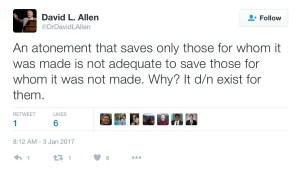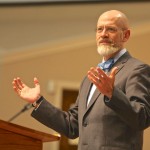In this excerpt from the Ligonier 2010 National Conference, Albert Mohler dispels two common caricatures of the doctrine of effectual calling.
Transcript
Does human responsibility eliminate irresistible grace? Who would like that one?
Well, let me just say—let’s admit that irresistible grace is not the way we would chose to express this. Effectual calling is a far more biblical way to express this because irresistible grace sounds like a cartoon setup in which there’s someone saying, ‘I do not want to be regenerated, I do not want to be born again, I do not want to love Christ.’ And yet they’re being overruled to such that it’s against their will. What kind of love is capable of being constructed out of being overruled with one’s will.
No. It’s effectual calling that reminds us that what God begins, in terms of the order of salvation, He always finishes. And when that work of genuine faith begins in the believer—the work of God—He will bring it to full fruition. And you’re going to see it when grace becomes—the operations of grace—becomes evident in the individual because they do love Christ and they do desire the things of Christ—they desire salvation. And so we just need to get rid of the straw man—they’re two horrific cartoonish straw men we need to be rid of. The first is the righteous sinner who desires to be saved but just can’t because he’s righteous and desiring salvation because he’s not among the elect. And the other is the person who desperately does not want to be among the elect but has been elected anyway. Neither of those persons is found within the Scriptures.



